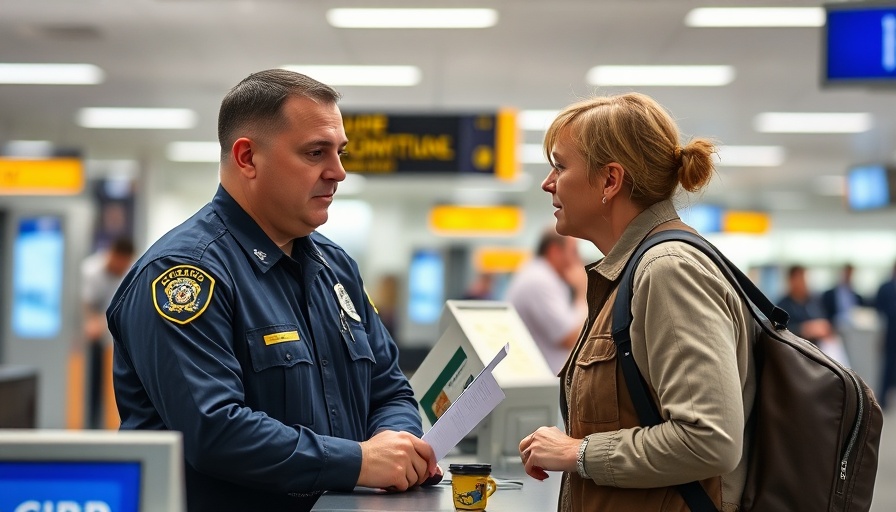
Understanding CBP’s Authority Over Green Card Holders
In the realm of U.S. immigration, the role of Customs and Border Protection (CBP) is both crucial and complex for green card holders. Traditionally, the role of CBP officers seems straightforward - to ensure that lawful residents and visitors comply with the rules governing entry into the United States. However, the nuances surrounding what CBP can and cannot do during inspections can be troubling for those unfamiliar with immigration law.
Key Questions CBP Can Ask
At the forefront of a CBP officer's responsibilities is the need to assess whether a green card holder remains eligible to re-enter the U.S. After a prolonged absence, especially if someone has stayed outside the country for more than six months, they could be questioned about potential abandonment of their residency. Similarly, a criminal conviction could act as a red flag, prompting the officer to investigate further.
This probing not only concerns the eligibility of the individual but can also extend to circumstances such as a lost or expired green card or actions that may contravene immigration policy.
Secondary Inspections and Your Rights
If concerns arise, an individual may be directed to secondary inspection. This phase involves more detailed questioning regarding travel history and immigration status. Perhaps disconcerting is that CBP can detain someone for an extended time but must provide a valid reason. It's critical for green card holders to be aware of their rights during this stressful process, which can heavily impact individuals and families.
Misconceptions About Green Card Revocation
One of the most alarming misconceptions is the notion that CBP can immediately take away a green card. As stated, officers cannot revoke a green card on the spot – that authority lies in formal removal proceedings. If a CBP agent believes there are grounds for removal, they may issue a notice to appear (NTA). Understanding these distinctions is vital for immigration attorneys advising clients in distressing and often intimidating situations.
Best Practices for Green Card Holders
For legal professionals representing green card holders, it’s essential to educate clients about practical steps they can take before traveling. Maintaining proper documentation, keeping immigration status current, and ensuring their travel stays within the allowable limits are straightforward actions that can significantly reduce post-travel hassles.
Ultimately, an informed community is a resilient one. Immigration attorneys play a pivotal role in aiding clients to navigate these situations with confidence. Their knowledge can not only help clients during border inspections but can also empower them with the understanding necessary to maintain their residency and rights.
As discussions surrounding immigration policy evolve in the U.S., it remains crucial for both green card holders and their advocates to stay informed and prepared.
 Add Row
Add Row  Add
Add 

 Add Row
Add Row  Add Element
Add Element 




Write A Comment